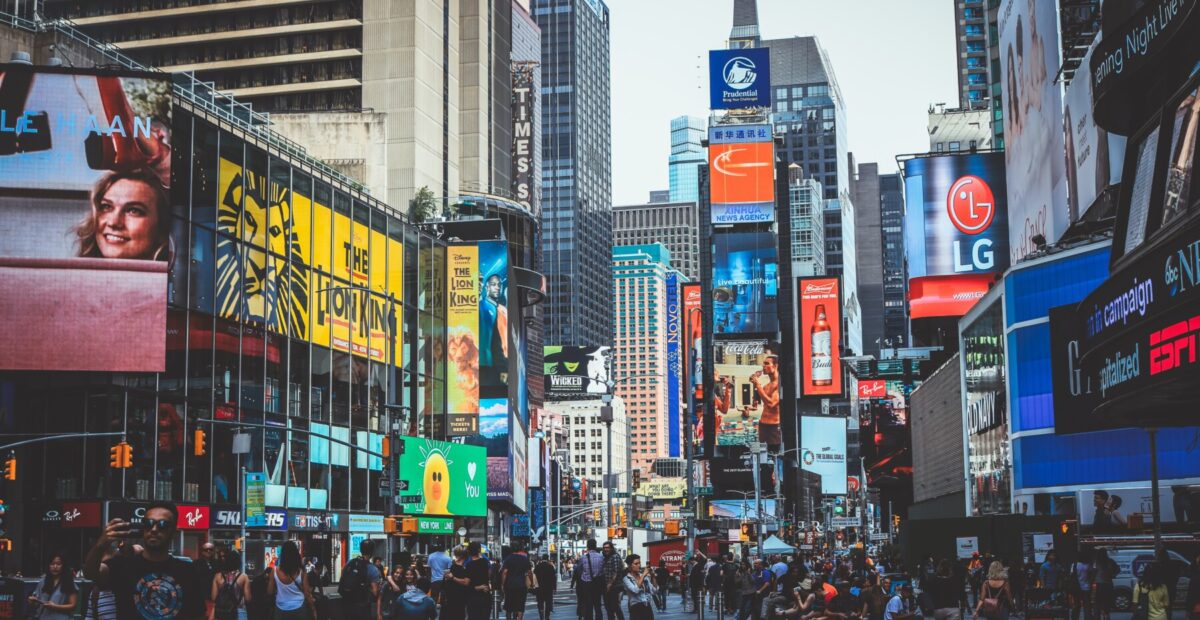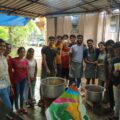
Workshop
Solidarity is the art of caring one for the other

More than 30,000 migrants from the Mexican border have arrived in New York, crammed onto buses paid for by Southern governors to the East Coast to create a crisis, but New Yorkers have opened their homes.
(From New York) El Paso – New York: 3,540 kilometers in 36 hours. Maria, Josè, Juan, the teddy bear and the small bag where their lives have been crammed, like those of many like them who have crossed the south border of the United States, have covered these kilometers. As they arrived in Texas, a fleet of buses awaited them where they were boarded without even knowing their destination, until the arrival: Manhattan, Times Square, the center of the capital of the world. From the month of August, each week five to nine buses arrive in the city, with a human load of disoriented people, without sufficient food or water, without life-saving medications like insulin, without any knowledge of the language and geography of the new country.
Some thought of going from New York to Indianapolis by foot, not knowing that it takes 240 hours and 1,166 kilometers. And yet this perspective doesn’t seem to scare them. Maria walked for 21 days before reaching from Nicaragua to Mexico and from there to the USA border. She knows she cannot go back, because her government does not accept repatriation, so this is where she will have to begin her life, along with the 30,000 others who have been dumped at the Grand Mela main terminal since August at the behest of the governors of Texas, Arizona, and Florida, who have chosen the humanitarian crisis route to undermine the government’s migration policy. The mayor of New York, Eric Adams, had declared the state of emergency in October and a few days ago he had asked U.S. President Biden for $240 million in extraordinary funds to be added to the $600 million the city is already putting into routine assistance.
If the public facilities were gasping in finding solutions, the New Yorkers replied, choosing the path of solidarity and some even chose to open their own homes. Melanie decided to accommodate seven youth in her empty apartment in Brooklyn, who had as the only alternative the street, while directions would be needed to get to their friends and relatives in Chicago. Whoever asks her the reasons for this choice, Melanie answers saying it is “only a part of my humanity. It is also part of my faith, and my faith comes from my humanity,”. This woman is a volunteer of the NYC ICE watch, a mutual support group that works with the migrants and constantly narrates that when these youths left the apartment, everything was cleaned to perfection.
Instead, Adama with the “Artists, Athletes and Activists” team is among the friendly faces who welcome the newcomers at the bus terminal. Together with Malu they provide the first indications about the city, to the many who aren’t even aware of having reached in New York. “Here you are free, you are welcome, and we will do our best to defend you”, explains Malu and adds: “Remember that if you see many policemen around, you do not have to be afraid.” The passion of “Artists, Athletes and Activists” is reuniting families that have been separated at the border. In these months, there are thousands of people who were able to reunite. Malu proudly remembers the story of two girls “separated from their mother and father and from their younger brothers. One was sent to Ontario, California. The other to San Diego, in California. We diligently worked to find them and make them reunite in New York. We succeeded”. The methodology of the group is simple. It starts with a conversation and for “the first time they see someone who really listens to them, someone who really cares for them and someone who wants to know what they need”, says Adama, who does not miss the opportunity to showcase another side of the city “that never sleeps.” “Us New Yorkers are fantastic. We are incredible. We are willing to take the first step and say: “Hey, I am a doctor, I am a nurse, I am a lawyer. I can take some time to help” underlines Adama, specifying that so many get involved in the field, succeeding in seriously entering the lives of the newcomers.
Arianda teaches, but in the evening, she becomes the founder of the South Bronx Mutual Aid, an organization that helps people find lodging, food, cloths. When the buses from the Mexican borders reached Times Square, she reached as well, with her team companions: other migrants that became volunteers and interpreters. If a migrant is expelled from an accommodation center or feels threatened, these volunteers search for a “safe space” or as they call it a “sanctuary place”, that is often a room in a church, a cot in the back of a company or a sofa in a friend’s living room. “The mutual aid, solidarity is not a mere charity – argues Philips -. We all take care one of the other.”






